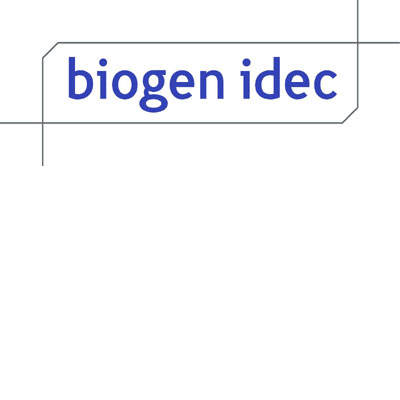Biogen Idec to present extensive new data from its robust multiple sclerosis portfolio at ECTRIMS
Posted: 23 September 2013 | | No comments yet
More than 55 company-sponsored presentations underscore Biogen Idec’s commitment to treatment advances for people with MS…


Biogen Idec (NASDAQ: BIIB) will present 58 data sets from the company’s multiple sclerosis (MS) clinical portfolio of approved and investigational products at the 29th Congress of the European Committee for Treatment and Research in Multiple Sclerosis (ECTRIMS) in Copenhagen, Denmark, October 2-5.
The collection of data being presented at ECTRIMS represents Biogen Idec’s industry-leading expertise in MS research and showcases the company’s deep understanding of differing patient needs. Through decades of cutting-edge science, Biogen Idec has more experience than any other company in advancing the treatment of this disease, recognising that physicians need therapeutic choices to meet treatment goals.
“Biogen Idec is proud to be at the forefront of innovation in MS, which has been made possible through our research and development efforts over the past 30 years,” said Douglas E. Williams, Ph.D., executive vice president, Research and Development at Biogen Idec. “Our commitment has enabled us to bring a number of therapy options to patients, and we are excited to be presenting data on some promising candidates which have the potential to broaden the treatment spectrum for people living with this chronic, debilitating disease.”
Data at ECTRIMS will be presented from across Biogen Idec’s portfolio, including:
Approved medicines:
TYSABRI® (natalizumab): offers established efficacy that has been proven to reduce relapses and slow disability progression.
TECFIDERA® (dimethyl fumarate): an oral treatment for relapsing forms of MS, including relapsing-remitting MS (RRMS), which has been clinically proven to significantly reduce important measures of disease activity with a favorable safety/tolerability profile. TECFIDERA is currently approved in the United States, Canada and Australia.
FAMPYRA® (prolonged-release fampridine tablets): the first approved treatment to address the unmet medical need of walking improvement in MS patients, demonstrating efficacy in patients with all MS types. Approved in the European Union.
Investigational medicines:
PLEGRIDYTM (pegylated interferon beta-1a): a potential new molecular entity for relapsing forms of MS in which interferon beta-1a is pegylated to extend its half-life and prolong its exposure in the body. Pegylation offers a less-frequent dosing schedule.
DACLIZUMAB HIGH-YIELD PROCESS (DAC HYP): is being developed as a once-monthly subcutaneous injection. DAC HYP is believed to target the activated immune cells that can play a key role in MS without causing general immune cell depletion. DAC HYP is being developed under a collaboration agreement with AbbVie, Inc.
Anti-LINGO-1 (BIIB033): is the first candidate being investigated for its potential to repair neurons damaged by MS.
Registry Research Fellowship Program opening for applications
At ECTRIMS, Biogen Idec will also launch The Multiple Sclerosis Registry Research Fellowship Program, an initiative which solidifies our ongoing commitment to clinical research in order to improve the lives of people living with MS. Grants awarded through the program will provide an annual stipend of up to €75,000 per fellow, for training in research with large real-world evidence datasets in MS.
Full session details of the 2013 Annual Meeting can be found on the ECTRIMS website: http://www.ectrims-congress.eu/2013.
The titles of key Biogen Idec abstracts are as follows:
TYSABRI:
October 3
- Poster #519: Effects of natalizumab treatment on freedom from disease activity by baseline characteristics in AFFIRM
- Poster #524: Natalizumab reduces the disabling amplitude of multiple sclerosis relapses and improves post-relapse residual disability
October 4
- Poster #1050: Disease activity and disability progression decrease beyond two years on natalizumab in relapsing multiple sclerosis patients in the TYSABRI® (natalizumab) Observational Programme
TECFIDERA:
October 3
- Poster #538: 4-year follow-up of oral BG-12 (dimethyl fumarate) treatment in relapsing remitting multiple sclerosis (RRMS): integrated clinical efficacy data from the DEFINE, CONFIRM, and ENDORSE studies
October 4
- Poster #1004: 4-year follow-up of oral BG-12 (dimethyl fumarate) treatment in relapsing remitting multiple sclerosis (RRMS): integrated magnetic resonance imaging (MRI) outcomes from DEFINE, CONFIRM, and ENDORSE
- Poster #1127: Interim analysis of quality of life in patients with relapsing remitting multiple sclerosis treated with BG-12 (dimethyl fumarate) in the ENDORSE study
- Poster #996: Safety profile of BG-12 (dimethyl fumarate) in relapsing remitting multiple sclerosis: long-term interim results from the ENDORSE extension study
- Poster #990: Effect of BG-12 (dimethyl fumarate) in newly diagnosed relapsing remitting multiple sclerosis (RRMS) patients from the DEFINE and CONFIRM studies
- Poster #1100: Dimethyl fumarate and monomethyl fumarate are distinguished by non-overlapping pharmacodynamic effects in vivo
FAMPYRA:
October 3
- Poster #665: Long-term prolonged-release fampridine treatment and health-related quality of life outcomes: nine-month interim analysis of the ENABLE study
- Poster #658: Health-related quality of life outcomes following long-term treatment with prolonged-release fampridine: impact on psychological outcomes in the ENABLE study
October 4
- Poster #1128: Changes in physical functioning and activity following long-term treatment with prolonged-release fampridine in the ENABLE study
PLEGRIDY:
October 3
- Poster #514: Peginterferon beta-1a provides improvements in clinical and radiological disease activity in relapsing-remitting multiple sclerosis: year 1 findings from the phase 3 ADVANCE study
October 4
- Poster #989: Magnetic resonance imaging results from the first year of the ADVANCE study, a pivotal phase 3 trial of peginterferon beta-1a in patients with relapsing-remitting multiple sclerosis
Anti-LINGO-1:
October 3
- Poster #545: The use of magnetic resonance imaging to monitor the safety of anti-LINGO-1: findings from phase I studies in healthy volunteers and subjects with multiple sclerosis
- Poster #378: Blocking LINGO1 promotes axonal regeneration in the rat optic nerve crush model
DACLIZUMAB HYP:
October 4
- Poster #977: Reduction in brain atrophy with extended daclizumab HYP treatment: results of SELECT and the SELECT extension study
- Poster #864: Evaluation of immunogenicity in multiple sclerosis patients continuously treated with daclizumab-HYP during the SELECT and SELECTION clinical trials.



